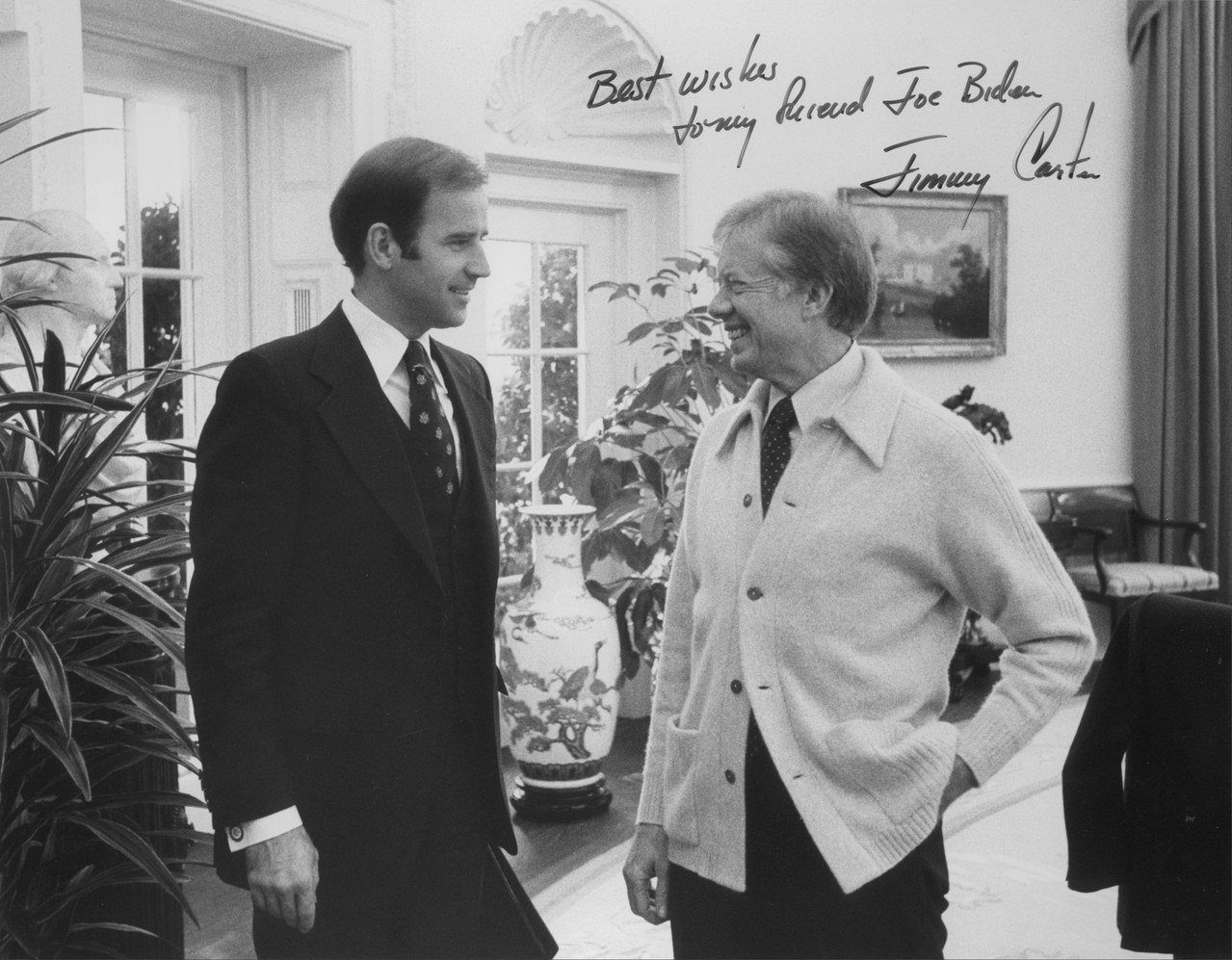Here Comes the ’70s

It is somehow absurdly fitting that Joe Biden, who entered the United States Senate in 1973 at the age of 30 as an opponent of racial busing, is presiding over a return to the 1970s. The Seventies are one of the few decades that the popular imagination—economic decline, decadence, environmental catastrophism, a lot of great football—gets right. While the differences between our present moment and the world of half a century ago are ultimately more important than the similarities, the latter are worth enumerating.
More than a year after the imposition of lockdowns, unemployment remains high even as wages stagnate. Whatever professional economists say about the matter, inflation is undeniably here, and if the secretary of the Treasury is to be believed, higher interest rates will follow sooner or later. Meanwhile there are gas shortages on the Eastern Seaboard, though they remain a matter of curiously less reporting than one might expect. (This time we find ourselves hostages not to the whims of oil sheikhs but of teenaged hackers.) Memories of rioting are fresh in many of our cities, and abroad there is civil war again in Ethiopia and the threat of a major conflict in Israel. Unspeakable sacrileges are being perpetrated by radical clergy.
Like his immediate predecessor and the leaders of both of our major political parties in Congress, Biden is a product of the turbulent decade we seem fated to live through again. But his generation is more comfortably off than their own parents were at the beginning of the Seventies, while their children and grandchildren are in a worse position by almost every imaginable measure. A young couple with the husband as the sole breadwinner earned more relative to the price of everything from home ownership (which was then within the reach of blue-collar laborers in a way that seems unimaginable now) to college tuition to basic household goods, which were more durable and not imported from East Asian sweatshops.
The country in which a young Joe Biden came into his own politically was one in which there was a sizable industrial base, in which vast swathes of the economy were yet to be subsumed into high finance, in which uncreative Fordist assumptions that now seem unthinkable dominated many corporate boardrooms. Race relations were bad, but Angela Davis was not a tenured professor of anything, and instead of therapeutic clichés for the corporate lecture circuit, radicals spoke with moral urgency, if not always clarity.
Now he and his fellow septuagenarians are confronted by the same crises to which they once responded with blithe optimism. Will they handle, say, stagflation better than Nixon did? Or will they, too, shake their heads in surprise when faced with a new decadence that will almost certainly not involve quadraphonic long-playing records or another Raiders Super Bowl?
From the decadence of the 1970s there arose a series of new political arrangements, the half-invisible ones we attempt to describe with epithets such as “neoliberal.” What we think of as the legacy of the Reagan administration began with Paul Volcker and Jimmy Carter’s breakup of the post-war consensus on the mixed economy.
Now that the new consensus appears to be just as exhausted as the one it replaced, it is worth asking: What will emerge from the dark decade ahead?
Here I cannot pretend to be optimistic. While it would be tempting to imagine that out of the present chaos of atomization, a new synthesis founded upon social and economic solidarity will appear, what seems more likely is that we are entering a new era of neoliberal hegemony in which even the trappings of old-fashioned liberalism are abandoned in favor of blind arithmetic accumulation and algorithmically optimized digital entertainment, fast food and cannabis delivery, and goodness knows what else. Nixon presided over the opening of Mao’s China. One suspects that 50 years later the former junior senator from Delaware will half-wittingly open the United States to Chinese-style authoritarian capitalism.
I for one would prefer polyester and Jack Tatum.
Matthew Walther is editor of The Lamp magazine and a contributing editor at The American Conservative.
Comments